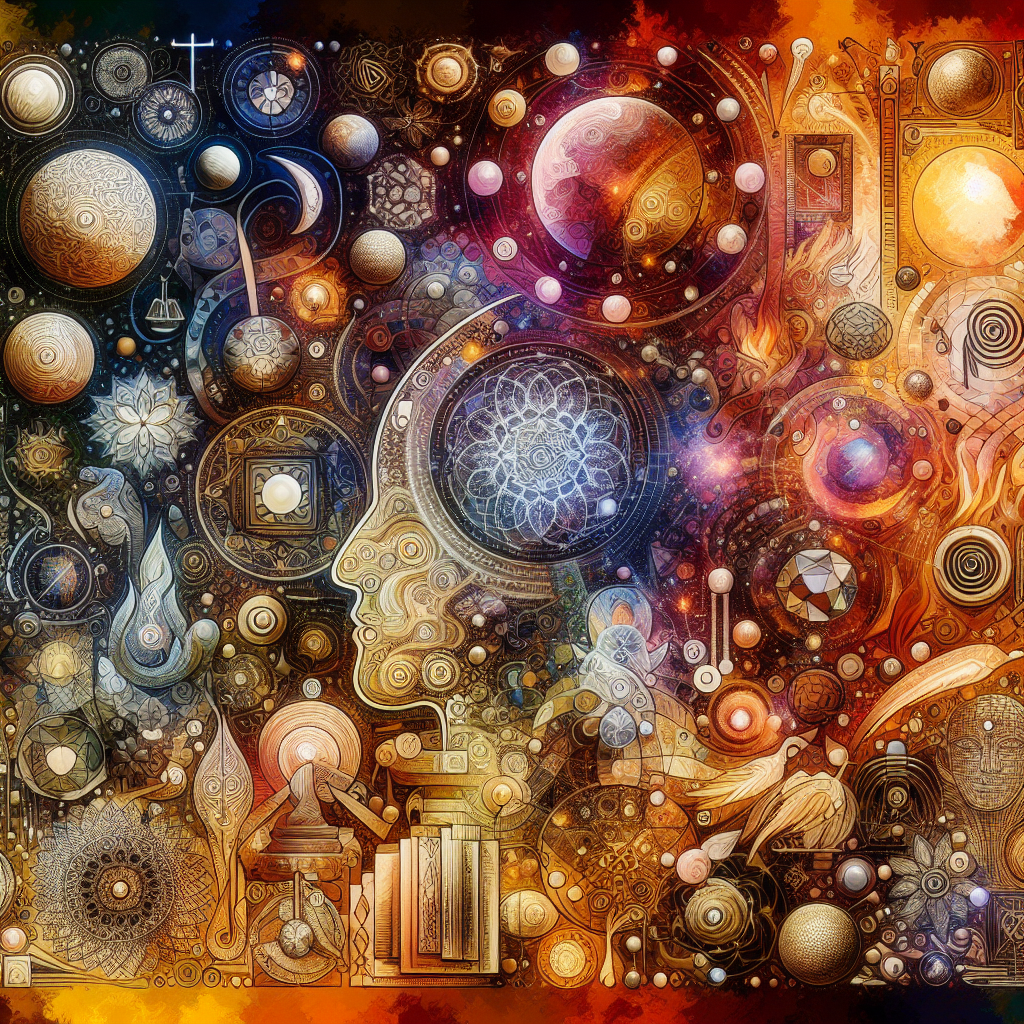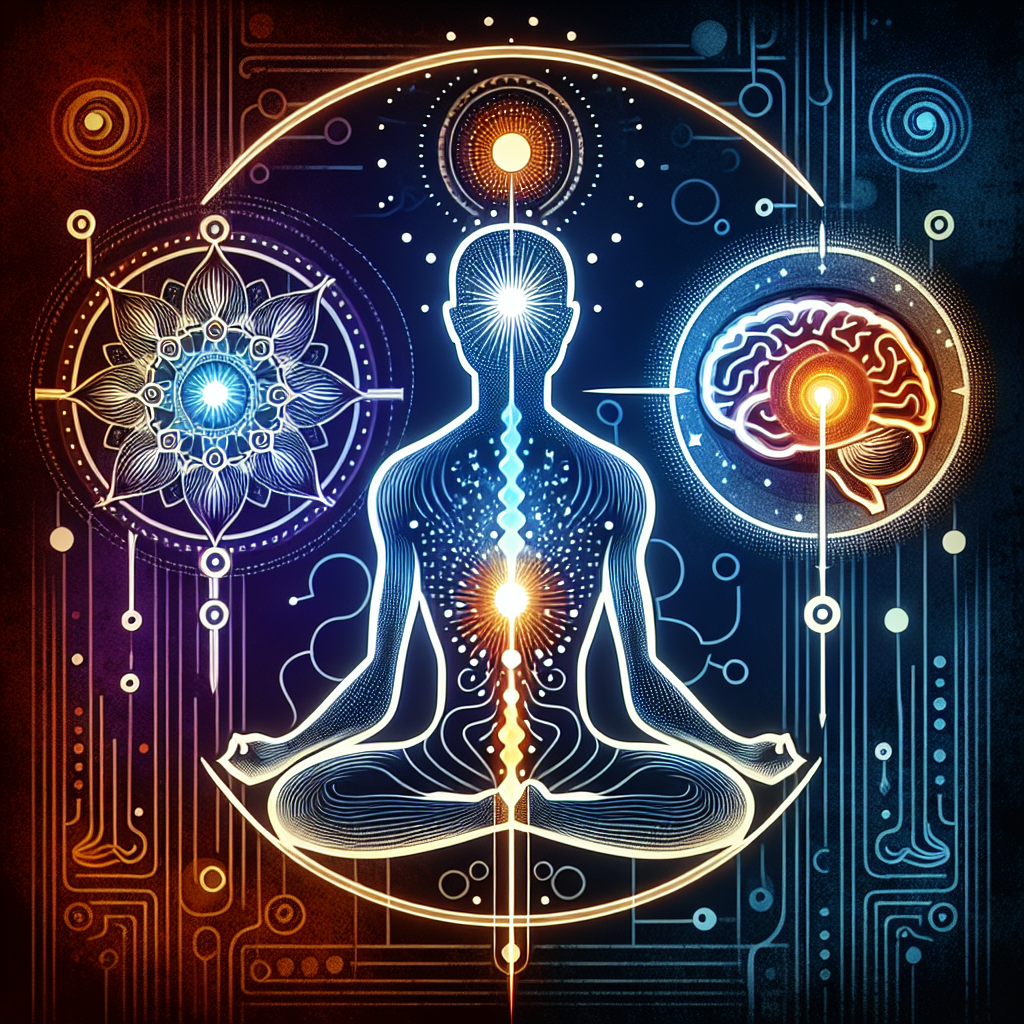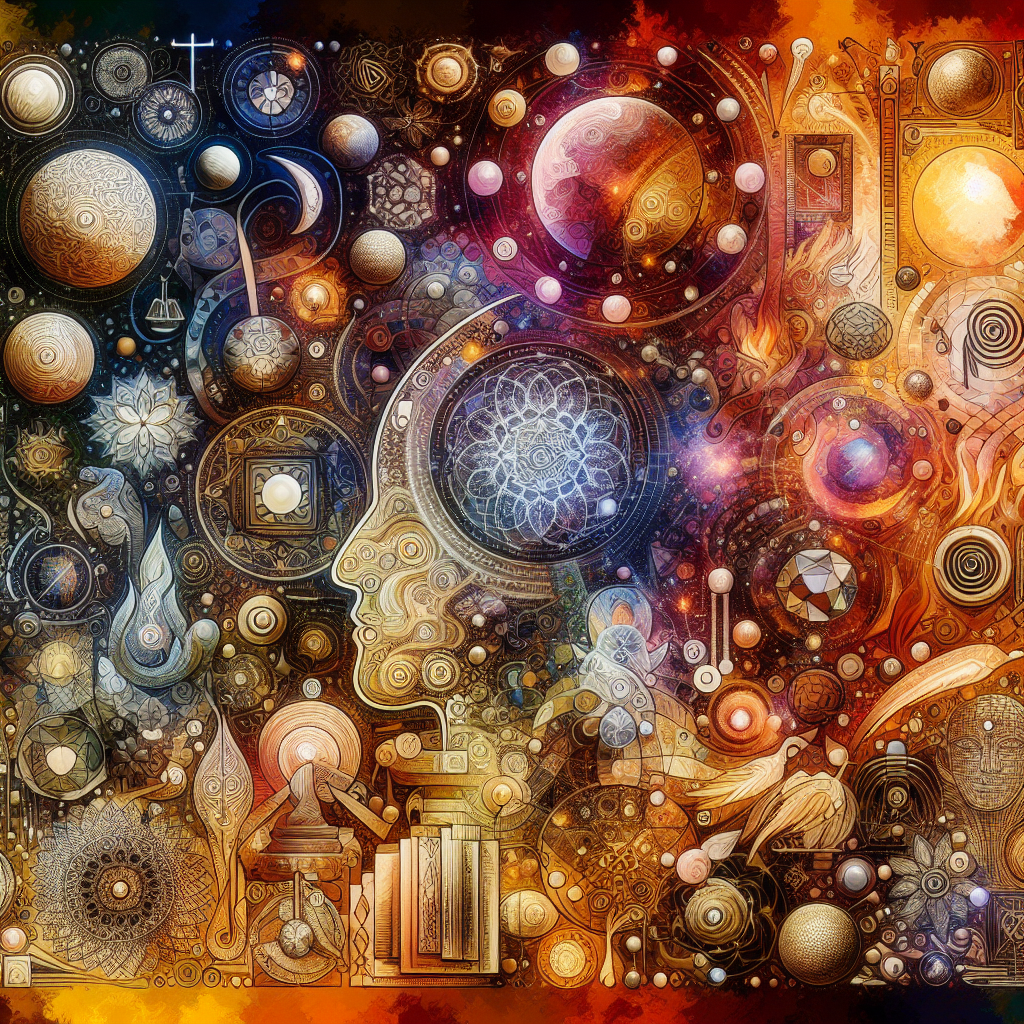Holistic living, a lifestyle focused on promoting overall well-being, has gained significant popularity in recent years. From practicing mindfulness to adopting wholesome diets, holistic living encompasses various aspects of our lives. One often overlooked element of this lifestyle is the significance of rituals. Whether it’s starting your day with a calming meditation or ending it with a soothing bedtime routine, rituals play a vital role in embracing holistic living. In this article, we will explore the importance of rituals and how they can enhance our overall well-being. So, grab a cup of tea, sit back, and let’s delve into the world of rituals in holistic living.
The Role of Rituals in Holistic Living
Holistic living is an approach to life that emphasizes the interconnectedness of the mind, body, and spirit. It recognizes that a person’s well-being is influenced by various aspects of their life, including their physical health, emotional well-being, relationships, and spiritual beliefs. Rituals play a crucial role in holistic living, as they serve as powerful tools for cultivating mindfulness, enhancing emotional well-being, promoting physical health, fostering a sense of connection, and supporting spiritual growth.
Defining Holistic Living
Holistic living is a lifestyle that focuses on achieving balance and harmony in all areas of life. It recognizes that each aspect of a person’s being is interconnected and that it is essential to nurture and care for every aspect. This holistic approach emphasizes the importance of self-care, self-reflection, and self-development.

Understanding Rituals
Rituals are intentional and symbolic actions that hold deep meaning and significance. They are a way to mark transitions, honor traditions, and connect with something greater than ourselves. Rituals often involve repetitive actions, specific symbolic objects, and a structured sequence of steps. They can be performed individually or as a community, serving as a way to engage with oneself, others, or the divine.
Benefits of Incorporating Rituals in Holistic Living
Promotes Mindfulness and Present Moment Awareness
Rituals provide an opportunity to cultivate mindfulness and present moment awareness. By consciously engaging in a ritual, you are bringing your attention to the present moment, observing each action and sensation with full awareness. This practice of mindfulness helps in reducing stress and anxiety, improving focus, and increasing overall well-being.
Enhances Emotional Well-being
Rituals have a profound impact on emotional well-being. They create a sense of stability and structure, providing a comforting and grounding experience. Rituals also allow for the expression and processing of emotions, serving as a safe and supportive space to release, heal, and celebrate. The repetitive nature of rituals can have a calming effect on the nervous system, reducing stress and promoting emotional balance.
Boosts Physical Health
Incorporating rituals into holistic living can have positive effects on physical health. Many rituals involve practices such as movement, breathwork, and self-care routines, which contribute to overall well-being. For example, morning rituals that include stretching or yoga can energize the body and enhance flexibility. Additionally, rituals focused on nutrition and mindful eating can promote healthy digestion and nourish the body from within.
Fosters a Sense of Connection
Rituals have a unique ability to foster a sense of connection, both with oneself and with others. By engaging in rituals, you are acknowledging and honoring your own needs, values, and beliefs. This self-connection can lead to increased self-awareness, self-acceptance, and self-compassion. Rituals are also a powerful way to connect with loved ones and create shared experiences, strengthening bonds and building a sense of community.
Supports Spiritual Growth
For many individuals on a holistic living path, spiritual growth is an essential aspect of their journey. Rituals provide a sacred space to explore and nourish one’s spirituality. Whether it is through meditation, prayer, or other spiritual practices, rituals allow for connection with the divine, the universe, or a higher power. They offer a sense of transcendence and can be a source of guidance, inspiration, and personal transformation.

Types of Rituals in Holistic Living
Morning and Evening Rituals
Morning and evening rituals are a powerful way to set the tone for the day and create a sense of closure in the evening. These rituals can include practices such as journaling, meditation, gratitude exercises, setting intentions, or engaging in self-care rituals like skincare or gentle stretching.
Daily Self-Care Rituals
Daily self-care rituals are essential in holistic living, as they prioritize taking care of oneself on a regular basis. These rituals can include activities such as mindful eating, regular exercise, getting enough sleep, practicing relaxation techniques, or engaging in hobbies or activities that bring joy and rejuvenation.
Nature-Based Rituals
Nature-based rituals involve connecting with the natural world and honoring the cycles of the earth. Examples of nature-based rituals include gardening, walking or hiking in nature, observing the changing seasons, or participating in eco-conscious practices that contribute to sustainability.
Meditation and Mindfulness Rituals
Meditation and mindfulness rituals are centered around cultivating present moment awareness and inner stillness. These rituals can include seated meditation, guided mindfulness practices, breathwork exercises, or engaging in mindful movement practices like yoga or Tai Chi.
Cleansing and Releasing Rituals
Cleansing and releasing rituals are focused on letting go of what no longer serves you and creating space for new possibilities. These rituals can involve practices such as smudging, decluttering physical spaces, creating a sacred space for ritual or meditation, or engaging in activities that symbolize release, such as writing down negative thoughts and burning them.
Gratitude and Journaling Rituals
Gratitude and journaling rituals are a way to cultivate a positive mindset and reflect on the blessings in your life. These rituals can involve writing down daily gratitudes, keeping a gratitude journal, expressing gratitude to others, or creating gratitude rituals that honor specific events or milestones.
Celebratory Rituals
Celebratory rituals are a way to mark special occasions, achievements, or milestones. These rituals can involve gathering loved ones, creating meaningful ceremonies or rituals, engaging in reflective practices, or participating in cultural or religious celebrations.
Sacred Space Rituals
Sacred space rituals focus on creating a designated space that supports and nurtures one’s spiritual practice. These rituals can involve creating an altar or sacred space, arranging meaningful objects, lighting candles, or engaging in rituals that consecrate or bless the space.
Relationship and Connection Rituals
Relationship and connection rituals are an opportunity to strengthen bonds with loved ones and cultivate meaningful connections. These rituals can involve practices such as sharing meals together, engaging in deep conversations, participating in activities that bring joy or connection, or creating rituals that honor and celebrate relationships.
Holidays and Seasonal Rituals
Holidays and seasonal rituals are a way to connect with cultural traditions, honor historical events or religious beliefs, and celebrate the changing seasons. These rituals can involve participating in rituals specific to one’s culture or religion, engaging in activities that align with the energy of each season, or partaking in traditions that have personal or family significance.
Creating Personalized Rituals in Holistic Living
Incorporating personalized rituals into your holistic living practice allows you to create practices that align with your unique needs, values, and intentions. Here are some tips to help you create personalized rituals:
Identify Areas of Focus and Intention
Take time to reflect on the areas of your life that you would like to focus on and the intentions you want to set with your rituals. This could be anything from promoting self-care, enhancing creativity, fostering relationships, or deepening your spiritual practice.
Choose Rituals Aligned with Your Values
Select rituals that align with your values and resonate with you on a deep level. Consider how each ritual supports your overall well-being and contributes to your holistic living journey.
Set the Right Atmosphere
Create a supportive atmosphere for your rituals. This can include elements such as candles, music, incense, or other sensory experiences that enhance the overall ambiance and create a sacred space for your practice.
Establish Consistency and Commitment
Consistency is key when it comes to rituals. Set aside regular time for your rituals and commit to making them a priority in your daily or weekly routine. This commitment will help deepen the ritual’s impact and make it a more integral part of your holistic living practice.
Adapt and Evolve Your Rituals
As you grow and evolve on your holistic living journey, be open to adapting and evolving your rituals. What may serve you at one point in your life may not resonate with you later on. Allow yourself the freedom to explore new rituals and practices that align with your current needs and intentions.
Seek Guidance and Inspiration
If you’re unsure where to start or looking for inspiration, seek guidance from books, online resources, or individuals who specialize in rituals and holistic living. They can provide valuable insight and help you discover new rituals that resonate with you.
Incorporate Rituals into Daily Routine
To truly integrate rituals into your holistic living practice, find ways to incorporate them into your daily routine. This could be as simple as setting aside a few minutes each morning for mindful breathing or engaging in a gratitude practice before bed. By making rituals a part of your daily life, they become second nature and contribute to your overall well-being.
The Science Behind Rituals in Holistic Living
While rituals may have deep spiritual and cultural significance, they also have a scientific basis that supports their effectiveness in holistic living.
Psychological Effects of Rituals
Rituals have been found to have powerful psychological effects. They create a sense of structure and predictability, which can reduce anxiety and increase feelings of control. Rituals also provide a sense of meaning and purpose, contributing to overall well-being. Studies have shown that engaging in rituals can boost confidence, enhance self-esteem, and improve one’s overall sense of identity and belonging.
Neurological Impact of Rituals
Neurologically, rituals have been found to activate certain regions of the brain associated with reward and pleasure. The repetition and patterns involved in rituals stimulate the release of dopamine, a neurotransmitter that plays a crucial role in motivation and pleasure. This can contribute to the feelings of satisfaction, contentment, and relaxation often associated with engaging in rituals.
Cultural and Societal Significance
Rituals are deeply ingrained in cultures and societies around the world. They serve as a way to transmit values, beliefs, and traditions from one generation to the next. The act of participating in shared rituals strengthens social bonds, creates a sense of community and belonging, and fosters a collective identity. Rituals play a vital role in cultural cohesion and provide individuals with a sense of connection to their heritage and roots.
Rituals for Stress Reduction and Anxiety Management
Rituals have been found to be effective in reducing stress and managing anxiety. The rhythmic and repetitive nature of rituals can activate the relaxation response in the body, calming the nervous system and reducing the production of stress hormones. Engaging in rituals that promote self-care, mindfulness, and relaxation can provide a sense of calm and promote emotional well-being.
Common Challenges with Rituals in Holistic Living
While rituals have numerous benefits, incorporating them into holistic living can come with its challenges. Here are some common challenges and ways to overcome them:
Lack of Time
A busy modern lifestyle can make it challenging to find time for rituals. However, even small moments of intention and mindfulness can be transformative. Start by incorporating short rituals into your daily routine, such as a few minutes of meditation, deep breathing, or journaling.
Resistance to Change
Some individuals may resist incorporating rituals into their lives due to a resistance to change or a skepticism about their effectiveness. It can be helpful to approach rituals with an open mind and experiment with different practices to find what resonates with you. Give yourself permission to explore and be curious about the potential benefits that rituals can offer.
Difficulty in Establishing New Habits
Establishing new habits can be challenging, but rituals can help create structure and make new habits more accessible. Start small and be consistent with your chosen rituals. Over time, they become ingrained in your daily routine and become second nature.
Feeling Superstitious
Some individuals may associate rituals with superstitions or irrational beliefs. It’s important to distinguish between rituals that are rooted in personal meaning and tradition from those rooted in superstition. Embrace rituals that hold personal significance and support your well-being, without subscribing to harmful or baseless beliefs.
Finding the Right Rituals
With the abundance of rituals available, finding the ones that resonate with you can be a journey of exploration and self-discovery. Remain open to trying new practices, seeking guidance, and reflecting on how each ritual aligns with your values and intentions. Trust your intuition and choose rituals that feel genuine and meaningful to you.
Incorporating Rituals into Various Aspects of Life
Rituals can be incorporated into various aspects of life, enhancing overall well-being and creating a sense of fulfillment and balance.
Rituals in Personal Well-being
Personal well-being rituals can include practices such as self-care routines, mindfulness exercises, fitness activities, and nourishing rituals like cooking or reading. These rituals help prioritize self-care, cultivate a positive mindset, and foster a sense of self-connection and self-compassion.
Rituals in Relationships
Relationship rituals focus on nurturing and strengthening the bonds with loved ones. These rituals can involve regular date nights, shared meals, heartfelt conversations, or special rituals that celebrate milestones or anniversaries. Relationship rituals foster open communication, deepen connection, and create cherished memories.
Rituals in Work and Productivity
Work and productivity rituals are designed to enhance focus, creativity, and overall well-being in professional settings. These rituals can include practices such as setting daily intentions, creating a morning routine, taking regular breaks, practicing mindfulness or deep breathing during work, or creating a ritual of gratitude for achievements or successful completion of tasks.
Rituals in Creativity and Inspiration
Rituals in creativity and inspiration support the artistic and expressive aspects of life. These rituals can involve practices such as creating a sacred space for creative work, engaging in a daily journaling or drawing practice, setting aside uninterrupted time for creative pursuits, or participating in rituals that honor the muse or creative spirit.
Rituals in Spiritual Practices
Spiritual rituals are at the core of many holistic living practices. These rituals can involve meditation, prayer, energy healing, sacred ceremonies, or engaging in practices specific to one’s religious or spiritual beliefs. Spiritual rituals provide a space for connecting with something greater, cultivating inner wisdom, and deepening one’s spiritual growth.
Holistic Rituals from Around the World
Rituals are an integral part of cultures around the world, offering unique insights into the human experience and providing inspiration for holistic living practices.
Japanese Tea Ceremony
The Japanese tea ceremony, also known as Chanoyu, is a ritualistic practice centered around the preparation and serving of matcha tea. It emphasizes harmony, respect, and mindfulness, and is considered a way to connect with others, nature, and oneself.
Native American Smudging Rituals
Native American smudging rituals involve the burning of sacred herbs, such as sage, to purify and cleanse oneself and the environment. Smudging is believed to clear negative energy, invite positive energy, and create a sacred space.
Indian Ayurvedic Daily Rituals
Ayurvedic daily rituals, known as Dinacharya, are a part of the ancient Indian practice of Ayurveda. These rituals involve practices such as tongue scraping, oil pulling, self-massage, and meditation. They are designed to balance the mind, body, and spirit, promoting overall well-being.
Chinese Feng Shui Practices
Feng Shui, an ancient Chinese practice, involves arranging and harmonizing spaces to promote the flow of positive energy, or chi. It incorporates various rituals, such as decluttering, using specific colors and materials, and placing objects in specific locations to create balance and harmony in the environment.
Mexican Day of the Dead Rituals
The Day of the Dead, or Dia de los Muertos, is a Mexican holiday that celebrates and honors deceased loved ones. The rituals associated with this holiday include creating altars, offering food and drinks to the departed, and participating in processions and ceremonies. These rituals symbolize the continuity of life and death and create a sense of connection and remembrance.
Balancing Spontaneity and Structure in Rituals
Finding a balance between spontaneity and structure in rituals is essential for holistic living. While structure provides stability and a framework for rituals, allowing for spontaneity and intuitive exploration adds freshness and creativity.
Importance of Flexibility
Flexibility is crucial when incorporating rituals into holistic living. As life changes and evolves, the rituals that once served you may no longer align with your current needs. Be open to letting go of rituals that no longer resonate and embracing new practices that support your growth and well-being.
Creating Rituals that Adapt
Design rituals that have the flexibility to adapt to different circumstances and environments. This allows you to engage in rituals regardless of your physical location, time constraints, or resources available. For example, if your usual morning ritual involves a specific yoga sequence, create variations that can be done in different spaces or incorporate breathwork and meditation when time is limited.
Maintaining Ritual Structure
While flexibility is essential, maintaining a sense of ritual structure provides a grounding and familiar experience. Establish a consistent sequence of steps, symbolic objects, or specific timing that helps create a sense of rhythm and intention in your rituals. This structure acts as a container for your practice and enhances its effectiveness.
Embracing the Unexpected
Even with structure and consistency, rituals can still hold space for spontaneity and unexpected moments. Embrace the unexpected and allow yourself to be present and responsive to what arises during your rituals. These moments of serendipity can provide unique insights, inspiration, and a deeper sense of connection.
Conclusion
Rituals play a vital role in holistic living, supporting overall well-being and fostering a sense of connection, purpose, and growth. They provide a structured and intentional way to engage with oneself, others, and the world, cultivating mindfulness, enhancing emotional well-being, boosting physical health, and supporting spiritual growth. By incorporating personalized rituals into daily life, individuals can experience the profound benefits of holistic living and create a meaningful and fulfilling existence.

